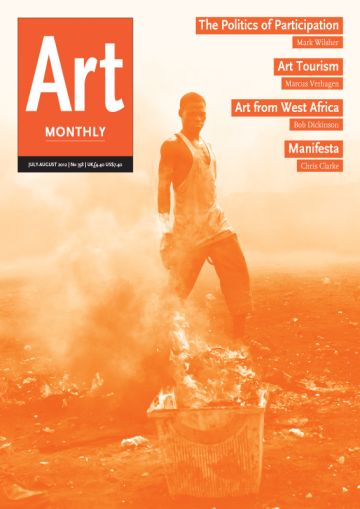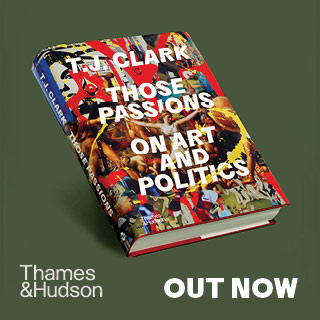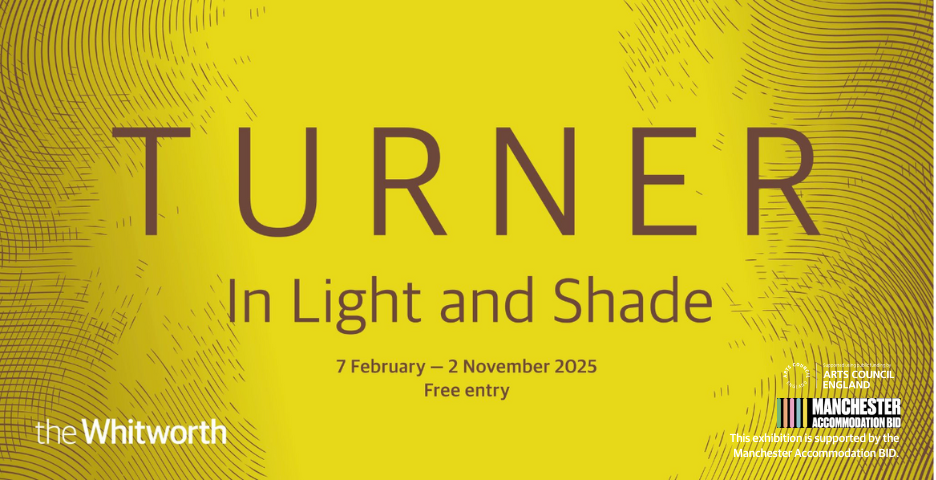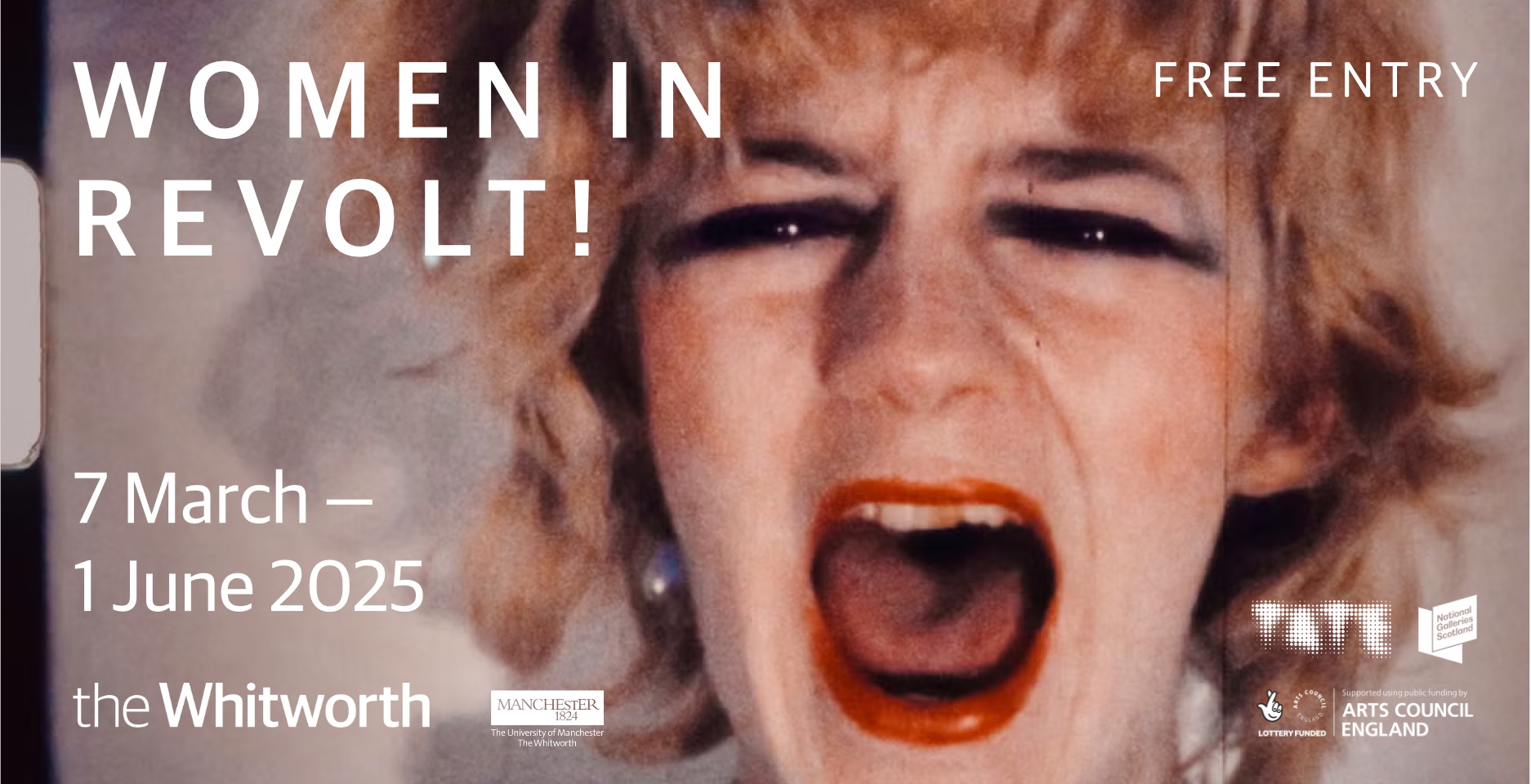Art Monthly 358
Jul-Aug 2012
The Politics of Participation
Mark Wilsher
Art Tourism
Marcus Verhagen
Art from West Africa
Bob Dickinson
Manifesta
Chris Clarke
Buy Now – select:
Want to read this right now?
Get instant access to the entire back catalogue via Exact Editions from only £8.99!
Contents
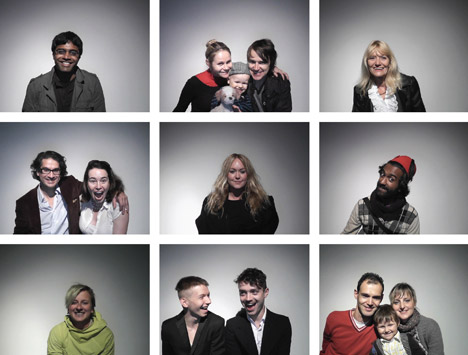
Yoko Ono Smile 2010
Feature
Out of Many, One
Mark Wilsher on the Cultural Olympiad and the politics of participatory public art projects
An increasingly popular new model of public art has now become entrenched through the official commissions for the Cultural Olympiad. This model sees artists choose iconic images to be constructed from myriad objects offered up en masse by the public, who then become participants in the artworks – or stakeholders, in the political jargon. But doesn't this limited notion of participation obscure more radical approaches to participatory art?
'Does it matter if artists build a boat or a bus? A nest or a table? It only matters that something is built. Looking at the project websites and associated social platforms it is clear that what counts is the process of participation itself.'
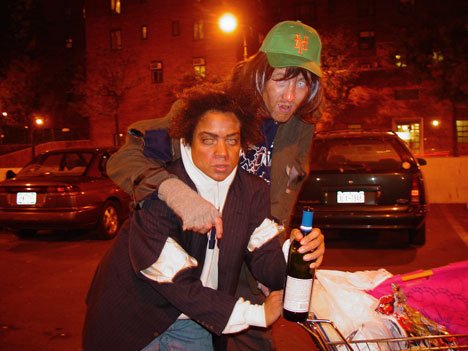
Olaf Breuning Home 2003
Feature
(Art) Tourism
Marcus Verhagen takes a nuanced view of art and tourism in a globalised economy
The tourist has a bad rap and is an easy target for cultural critique. Tourism is the world's largest service-sector industry and its global reach is still expanding. Art tourism contributes to this expansion, while artists themselves are continually on the move, 'shadowing' the tourist and relying on the infrastructure of the tourist industry to do so. A number of artists, including Francis Alys and Fischli & Weiss, have begun to address this dilemma in their work.
'Of the many artists who have reflected on their travels, some, like Darren Almond, have distanced themselves from the tourist, but others have adopted more nuanced and sympathetic positions.'
Comment
Editorial
Chuck It and See
As cultural institutions face ever-greater pressure to efficiently manage resources, so space-hungry old-media archives are increasingly being dumped after digitisation. But when many digital compression formats are described technically as 'lossy', shouldn't this be a clue that a database without a physical archive is a bad bet on fleeting technologies?
'Art departments in universities up and down the country are busy disposing of books, slides, analogue photographic and printmaking equipment and various other so-called redundant technologies. They are doing this partly to make space, under the pressure of numbers and competing departments, but mostly because of a headlong rush to invest in new, "clean", space-saving digital technology that will look good in their shiny new glass and steel buildings – though as any IT-aware student knows, new technology is out of date the moment it is installed.'
Letter
The Precarious Workers Brigade clarifies its position in relation to the 'Untitled (Labour)' symposium at Tate Britain (Reports AM356).
Artnotes
Protest group Bread and Circuses (motto: 'spectacle in the time of austerity') takes over a derelict building owned by Anish Kapoor in central London as an alternative arts venue; Creative Scotland remodels its grant schemes and, broadly speaking, workshops win out over galleries; ACE gives out more money to kick start endowments; a permanent publicly funded arts TV channel may be on its way; intern culture is examined; another art magazine moves online just as the oldest online art magazine shuts down; all the latest news on galleries, events, commissions, prizes and more.
Submissions: Send Artnotes info to artnotes@artmonthly.co.uk
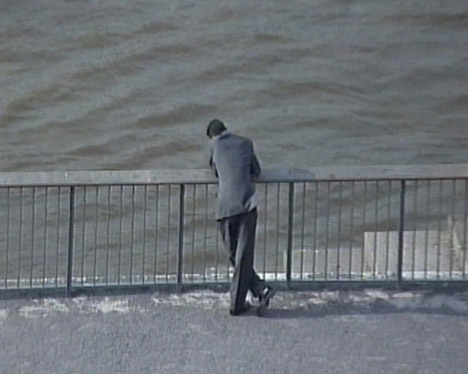
Nooshin Farhid Sorry, Mr Bond is dead 2002
Profile
Nooshin Farhid
Peter Suchin on the Iranian filmmaker
Nooshin Farhid, who fled to the UK from Iran in 1987, makes collaged films that fragment our sense of place, utilising a variety of filming techniques in order to reveal the constructed nature of realism.
'The result is a sharpening of perception, a reinvigoration of the media through which we try to understand contemporary culture and, indeed, the received – and sometimes already repackaged – past.'
Reviews
Exhibitions
Documenta 13
various venues, Kassel
Mark Prince
5th Bucharest Biennale: Tactics for the Here and Now
various venues
Omar Kholeif
We Face Forward: Art from West Africa Today
various venues, Manchester
Bob Dickinson
Manifesta 9: The Deep of the Modern
various venues, Genk
Chris Clarke
eva International 2012: After the Future
various venues, Limerick
Chris Clarke
Joel Holmberg & Jon Rafman: Rome Wasn't Built Because No One Had Anything On That Week
Outpost, Norwich
Nick Warner
Nancy Holt
Haunch of Venison, London
Cherry Smyth
Aleksandra Domanovic: Turbo Sculpture
SPACE, London
Morgan Quaintance
Jo Spence: Work (Part I & II)
SPACE and Studio Voltaire, London
Maria Walsh
Gayle Chong Kwan: Double Vision
Peckham Space, London
Eliza Williams
A Parliament of Lines
The City Art Centre, Edinburgh
Rosie Lesso
London Round-up
Chris Fite-Wassilak
Reviews
Books
Locating the Producers: Durational Approaches to Public Art
Alex Coles finds public artworks sited in time rather than place
'The editors' state their aims for the book thus: to graft theories of human geography and contemporary archaeology and use them to align the recent theorisation of the curator as producer with art that is simultaneously site and time sensitive.'
Summer Reading
Patricia Bickers corrals some recent publications
'The real purpose of Will Gompertz's book is not to inform the reader but the writer. In a nutshell, what this book represents is the outcome of a four-year – on-off – crash course in art history that is the equivalent of the three-month "media training" he undertook at the BBC.'
Reviews
Film
Mikhail Karikis: SeaWomen
Cherry Smyth on an immersive film installation at Wapping Project
'In his moving sound and film installation, Mikhail Karikis abandons certain cinematic conventions, such as sync sound, narration and subtitles, to free up our interaction with his subjects and leave much of their world unknown.'
Reviews
Performance
Emily Roysdon: I am a Helicopter, Camera, Queen
Maria Walsh watches online as a Tate event is performed live to webcam
'Logging on at the streaming time of 8pm, I found myself facing a large group of people, mostly women, mostly young, looking up at the camera.'
Reviews
Sound
Her Noise: Feminisms and the Sonic
John Douglas Millar catches the sound-archive's events at Tate Modern
'What was so heartening about this event was the way it allowed different strains of feminist discourse to mingle, coalesce and antagonise, and the way the symposia framed the discourse around sound and music within a broader socio-economic and human rights-based agenda. Lina Dzuverovic finished her talk on the Saturday with a call for solidarity with the Russian Riot Grrrl group Pussy Riot whose members currently languish in a Moscow jail.'
Report
Letter from Mexico
Pop-up Projects
Kathy Battista visits an art scene that is drawing global attention
'From commercial galleries to museums and smaller non-profits, the city has a thriving contemporary art community, which is increasingly drawing expats – both practitioners and galleries – into its fold.'
Report
Conference
The Penzance Convention
Colin Perry feels the tension in a locally focused international art colloqium
'Rich in contradiction, the Convention was as generous as it was exclusive, at once intellectually probing and awkwardly constrained by its art discourse.'
Artlaw
Contracts & Moral Rights
Authenticating Sol LeWitt
Henry Lydiate examines the value of a wall drawing without its authenticity certificate
'Roderic Steinkamp owns Sol LeWitt's Wall Drawing #448 and authenticity certificate, which he consigned to the Rhona Hoffman Gallery in 2008. In 2011 the gallery notified Steinkamp that the certificate had become "lost and irretrievable".'
Listings
Exhibitions
Exhibition listings
Art Monthly's exhibition listings can also be viewed online.

